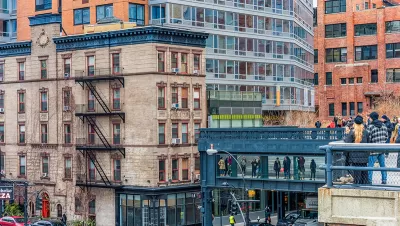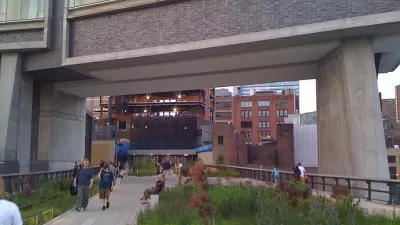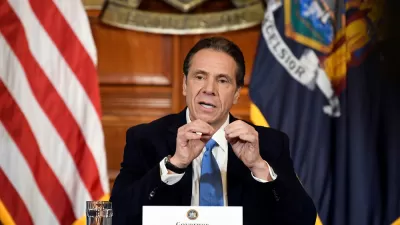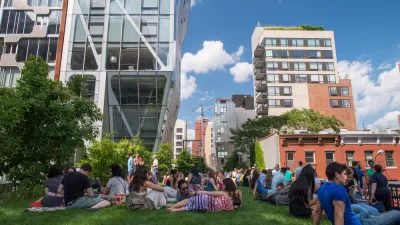A new debate has emerged, starting from a source very close to the project, about the effects of the High Line in New York City.

Criticisms of the High Line have ben far less frequent and much younger than the heaps of praise offered the transformative project. Much more common than concerns about gentrification or displacement, were willing imitations of the many of the component ideas at work on the High Line—an elevated structure given to pedestrians, a focus on plantings, community ownership of public space and much more.
In an article by Laura Bliss for CityLab, however, Robert Hammond, one of the co-founders of the Friends of the High Line and the current executive director of the organization, echoes some of the criticisms of the High Line. In his own words, as quoted in the article, Hammond says: "We were from the community. We wanted to do it for the neighborhood," adding, "Ultimately, we failed."
According to Bliss, Hammond and the Friends of the High Line are "course correcting," adding paid listening sessions, paid jobs-training programs, and new events, like a summer series of Latin dance parties.
But, writes Bliss, "there’s a lot the High Line could have done before it opened that it can’t make up for now. Its designers might have paid stronger attention to a few basic principles of attractive public spaces, and specifically those that attract low-income and minority park-users." The limited number of access points and the long list of prohibitions posted around the park provide two examples of design decisions that have produced predictable results. "Perhaps more critically, Friends of the High Line could have worked harder from the start to advocate for affordable housing," adds Bliss.
Bliss writes a lot more on the subject, also examining other public space projects around the city to show that the High Line's example has helped other advocates and designers avoid the same mistakes.
Steve Cuozzo, writing for the New York Post, takes umbrage with the characterization of the High Line as a failure, however. "[Hammond's baffling stroke of creator’s remorse lent dubious gravitas to the High Line Backlash," writes Cuozzo.
Cuozzo recounts criticisms of the project in recent years, offered by Mayor Bill de Blasio and the head of the tenants association at the nearby lower-income Fulton House project, describing them as "ridiculous" and "idiotic." Cuozzo's concluding thought: "I hope Hammond stops blaming himself for 'failure' and accepts that he helped bring forth a true wonder of our age."
FULL STORY: The High Line's Next Balancing Act

Planetizen Federal Action Tracker
A weekly monitor of how Trump’s orders and actions are impacting planners and planning in America.

Maui's Vacation Rental Debate Turns Ugly
Verbal attacks, misinformation campaigns and fistfights plague a high-stakes debate to convert thousands of vacation rentals into long-term housing.

San Francisco Suspends Traffic Calming Amidst Record Deaths
Citing “a challenging fiscal landscape,” the city will cease the program on the heels of 42 traffic deaths, including 24 pedestrians.

Defunct Pittsburgh Power Plant to Become Residential Tower
A decommissioned steam heat plant will be redeveloped into almost 100 affordable housing units.

Trump Prompts Restructuring of Transportation Research Board in “Unprecedented Overreach”
The TRB has eliminated more than half of its committees including those focused on climate, equity, and cities.

Amtrak Rolls Out New Orleans to Alabama “Mardi Gras” Train
The new service will operate morning and evening departures between Mobile and New Orleans.
Urban Design for Planners 1: Software Tools
This six-course series explores essential urban design concepts using open source software and equips planners with the tools they need to participate fully in the urban design process.
Planning for Universal Design
Learn the tools for implementing Universal Design in planning regulations.
Heyer Gruel & Associates PA
JM Goldson LLC
Custer County Colorado
City of Camden Redevelopment Agency
City of Astoria
Transportation Research & Education Center (TREC) at Portland State University
Jefferson Parish Government
Camden Redevelopment Agency
City of Claremont





























